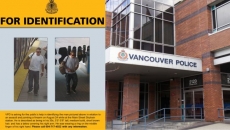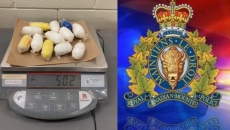Families of murder victims in British Columbia say the 14,000 exhibits collected by RCMP during the Robert Pickton serial killer investigation could be the last chance to find out what happened to their loved ones.
Mounties have applied to the court to allow them to destroy the exhibits, saying all relevant evidence has been retained and they can’t keep every piece of property indefinitely.
But at a news conference today, family members and the advocacy group Justice for Girls say the evidence could be used to convict other people, or solve some of the dozens of unsolved cases of women who went missing from Vancouver's Downtown Eastside.
Lorelei Williams, whose cousin Tanya Holyk was named as one of Pickton's victims, says the RCMP request is another example of officials not caring about Indigenous women.
Pickton was found guilty in 2007 of second-degree murder and sentenced to life in prison without chance of parole for 25 years in the deaths of six women.
When the Supreme Court of Canada upheld his sentence, first-degree murder charges involving 20 other women, including Holyk, were stayed because Pickton was already serving the maximum sentence.
A letter endorsed by more than 40 organizations, academics and Indigenous groups across Canada was sent asking the federal public safety minister, the commissioner of the RCMP and B.C.'s government to each "take immediate steps to preserve Pickton evidence."
“This latest step by the RCMP symbolizes yet another failure for these families, for our communities and for Canada’s overall commitment to justice, human rights and dignity for stolen sisters, mothers, daughters, aunties and grandmothers,” the letter says.






